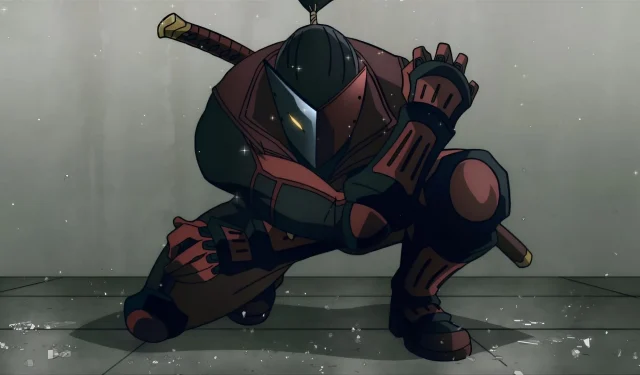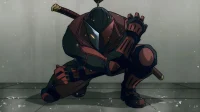My Hero Academia: Vigilantes serves as an essential prequel that delves into the origin story of Hero Killer Stain, revealing the complexities of his fragmented psyche while illuminating the darker aspects of his character.
This spin-off critically examines the deep contradictions inherent in Stain’s ideology, articulating his mental instability and the cognitive dissonance that defines him. Rather than legitimizing his beliefs, the narrative exposes the fundamental inconsistencies at play, portraying Stain not as a champion of justice, but as a tragic figure ultimately crushed by his misguided principles.
Disclaimer: This article presents a speculative theory based on the author’s interpretation.
Unraveling the Hypocrisy and Madness of Stain’s Beliefs in My Hero Academia: Vigilantes
In episode 6 of Vigilantes, the validity of Stain’s ideology is significantly undermined. His evolution from the literary figure Stendhal to the notorious Stain signals not enlightenment, but a further decline into a reality detached from reason, fixated on unattainable ideals. The fervent admiration he holds for All Might takes on a particularly troubling significance, reflecting a self-destructive zeal that the primary series critiques directly.
The irony is striking: Stain idolizes All Might for traits that lead to his own degradation, equating self-sacrifice with true heroism. This misinterpretation becomes alarmingly evident during Stain’s assault on Ingenium (Tensei Iida). By the very standards Stain claims to uphold, Ingenium embodies the quintessence of heroism—acting decisively to protect others without seeking fame, a quality Stain professes to value.
Despite this, Stain’s attack reveals a glaring inconsistency in his understanding of “true heroism.”His arbitrary criteria expose the vacuity within his philosophy. Stain’s aim is not to reform Hero Society; rather, he seeks its annihilation in favor of an unattainable ideal that no hero, not even All Might, could realistically uphold.
The commercialized notion of heroism depicted in the My Hero Academia universe provides Stain with just enough societal criticism to lend his rants an aura of profundity to some observers. This unfortunate scenario gives rise to a perilous illusion of insight masked by delusion. Vigilantes meticulously dissects Stain’s ideology, chronicling the psychological unraveling of Stendhal.
His transformation from an ambiguous vigilante to a deranged killer isn’t a product of philosophical enlightenment, but rather stems from trauma, obsession, and a progressively distorting mindset. The duality of Stain’s character captivates and disturbs, as his disjointed ideology parallels the main series’ nuanced discussions concerning the costs of heroism.
The series continually probes the sustainability of total self-sacrifice while acknowledging the noble intentions behind heroic acts. All Might’s bodily decline serves as a stark reminder that while his methods inspire, they are not sustainable in the long run. Through his development, Deku comes to understand that genuine heroism transcends self-destruction—a truth that eludes Stain entirely.
This spin-off effectively illustrates that Stain’s philosophy is not merely flawed; he struggles to differentiate between self-sacrifice and self-destruction, as well as between safeguarding society and imposing a violently extremist vision upon it.
Conclusion
In My Hero Academia: Vigilantes, we witness Stain’s evolution from a seemingly principled villain to a tragic character wrestling with mental illness and radicalization. His ostensibly justified anger gradually unravels into a tapestry of delusion and hypocrisy, revealing the underlying cognitive dissonance in his theories.
However, the spin-off maintains his appeal, shedding light on how a misguided sense of justice can lead to dangerous extremist beliefs. In this way, Vigilantes enriches the overarching narrative of the main series, juxtaposing Stain’s blood-soaked idealism against the flawed yet earnest endeavors of genuine heroes—individuals who stumble yet persist in their quest to protect others without losing their essence in the process.


